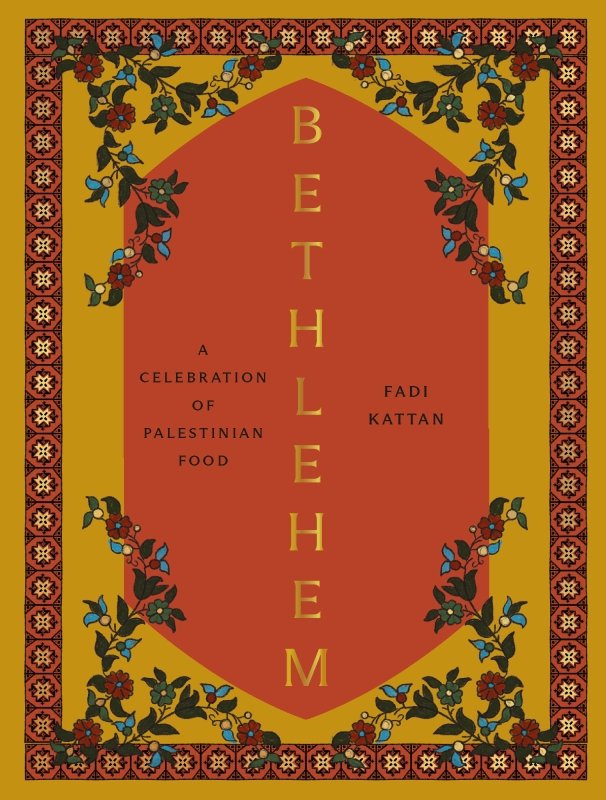Bethlehem, A Celebration of Palestinian Food
Hardie Grant Books, RRP $65.
By Fadi Kattan
We reckon if everyone cooked everyone else’s food from time to time, it would surely spread a bit of love and understanding around the world and isn’t that sorely needed right now? And sorry if that sounds a bit dippy-trippy; we’re just your basic idealistic leftie-leaning types who, despite our smart arsery and snark, wish people would sit at each other’s tables, shut the heck up about everything that divides, and bond over a jolly good lunch. Sigh.
We were big fans of Palestinian food before chef Fado Kattan’s book came along but we’re even bigger fans now. As the title suggests, it’s centred around the ancient city of Bethlehem where his family have lived for generations. The book’s as much about family, community, local food artisans and a deep sense of place as it is about actual recipes and if that’s the kind of cookbook you love, where you’re taken on a journey and there’s underlying cultural context, you’ll adore Bethlehem. Peppered throughout are vignettes of people, places and businesses and they give the book real heart. Although Kattan owns restaurants in London and Bethlehem, his recipes here aren’t restaurant-y. They’re for rustic, everyday Palestinian fare, divided among four chapters called Spring, Summer, Autumn and Winter.
If you’re wondering what Palestinian cuisine actually is, it’s not too dissimilar to Syrian, Lebanese and Jordanian food, with a few Ottoman Turkish influences chucked in for good measure. Unlike other parts of the immediate region, in Palestine they love fresh chillies. Speaking generally, spices, rice, grains, nuts, pulses, olives, herbs, olive oil, tahini, pomegranate molasses, cheeses, yoghurt, date syrup, and varieties of vegetables and fruits are signature ingredients. Because of the proximity to the Mediterranean, fish is important, with lamb, beef and chicken the main meats (Bethlehem has a big Christian population so there are a couple of pork recipes in the book too). Pickles, sweets, pastries and breads are made in a delicious variety. Stuffed vegetables, soups and dips, fresh salads, and roasted and chargrilled meats are menu features – overall the flavours are fragrant, fresh, rich and punchy.
There’s a hearty, home-made vibe to the recipes, with plenty you’d really want to make. Silek (silverbeet) salad, for example, is basically chopped, sautéed and dressed silverbeet and you can imagine it tasting like the very essence of the veg. Same with Barbecued Tomato Salad, Mafghoussa (a salad based on cooked-down zucchini), and Lentil Soup. They read as simple, but at the same time deeply flavoursome. More complicated dishes include Sayadieh Samak, a layered, baked dish of fish and rice, infused with a heady mix of spices and topped with dried pine nuts and almonds, and Cauliflower Makloubeh, another extravagant rice dish with spiced chicken, rice and a buttered nut garnish. With a few exceptions, ingredients are easy to get; occasionally you’ll come across a unicorn like laban jameed, (fermented dried yoghurt), mastic (the ground resin from a particular shrub, used in desserts and baking) and molokhia (a leafy vegetable also called jute mallow), but these aren’t the norm. These wouldn’t put us off Bethlehem and you shouldn’t let them put you off either. It’s a keeper.





